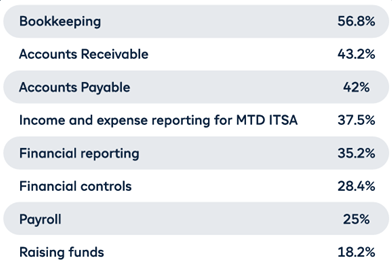Cloud accounting
The digitalisation of financial services – and how accountancy firms will need to shift to adapt
The rapid evolution of digital banking in the wake of COVID-19 has resulted in many customers finding it more convenient to manage their finances through online channels, and GlobalData’s Tech in 2030 report predicts that financial services will have digitally transformed by 2030. Shabnam Pervez, analyst, GlobalData reports

Financial services are being embedded into apps and other digital channels where the omnipresence of smartphones has accelerated the adoption of digital wallets as a payment option. Big Tech will have an advantage in the buy now, pay later (BNPL) sector and integrate BNPL into their ecosystems. Governments will continue to explore and develop central bank digital currencies and we expect many digital currencies to be a mainstream payment option by 2030. Therefore, accountancy firms must adapt to the changes in the financial services industry.

Shabnam Pervez (MBPsS)
Thematic analyst
GlobalData
Cloud-based data management (cloud accounting)
One of the key areas for accountancy firms to focus on is the adoption of cloud-based data management, also known as cloud accounting. Cloud accounting stores encrypted records of cash flow, liabilities, and assets online, where only those with a login can access it. Online accounting software solutions are an easy way for accountancy firms to upload their files and bookkeeping onto the cloud. Cloud accounting users can connect the software to a business bank account where cash flow automatically will be marked in books and banking statements.
Cloud accounting is a convenient way for accountants to monitor money as it reduces the need for manual data entry. A good cloud accounting platform can also help companies scale as it can incorporate add-on business features, including payroll and inventory management. Add-ons have the potential to create a customized platform offering full business performance visibility, with numbers from various sources flowing into a single platform. They enable speed and transparency within the organisation and fuel data-based insights and decision-making. Through custom add-ons, companies can capitalise on the full potential of accounting platforms to add business value.
According to ReportLinker, the global accounting software market is predicted to be worth $45.3 billion by 2028. Moving to a cloud-operated accounting platform can provide businesses with security and around-the-clock access to wide-ranging company data. Integrating bank feeds and payment providers also makes it easier to carry out reconciliation, loan applications, and payment transactions.
Companies of varying sizes benefit from cloud accounting software as it allows them to store and manage their financial data remotely, which can also serve as a method to digitalise records. However, for large enterprises, it is vital that, when selecting a cloud accounting provider, the power of the platforms is carefully assessed, including the type of partners and the number of partners that can integrate with it. Businesses must take the cloud accounting selection process seriously, as the accounting platform they choose has to build upon the company’s core offerings.
Open banking
Open banking refers to banks opening access to their data to third parties, most commonly via open application programming interfaces (APIs). Typically, open banking is introduced at the behest of regulators, such as the UK’s Competition and Markets Authority (CMA). Both public (e.g., product specifications) and customer data (account and transactional data) come under the remit of open banking. Consumers can share their account data with approved third parties to gain access to extra products and services. These may include account aggregation services that give users a single view of all the accounts they hold with different providers or services that allow consumers to make accurate product comparisons. Open banking aims to encourage innovation by making it easier for specialist providers to compete with banks on an equal footing, improving outcomes for consumers by making more choices and options available to them.
By integrating open banking, accountancy services can access customers' financial data in real-time directly from their business bank account, including data such as balance and transaction history. A June 2022 survey by Iwoca found that, of the 200 accountancy firms interviewed, 46% had already adopted open banking. However, 90% of respondents used cloud accounting software, suggesting that accountancy firms are still early in their open banking adoption journey. According to the same survey, the most common use case for open banking among accountancy firms was bookkeeping, followed by accounts receivable.
56.8% of accountancy firms use open banking for bookkeeping

Source: Iwoca
Open banking has the potential to enhance the value that accountancy firms add to their clients with efficient and accurate data entries. Firms that adopt open banking will have access to a myriad of different applications, from streamlining existing practice operations such as payroll, accounts receivable and payable, and bookkeeping to new services, including debtor management, real-time credit control, and bespoke fundraising.
Accountancy firms globally can benefit from digital transformative solutions, including cloud accounting software and open banking. While open banking is new territory for several accountancy companies, it has the potential to unlock value for both accountants and clients if explored.
Main image credit: MR.Cole_Photographer / Getty Images